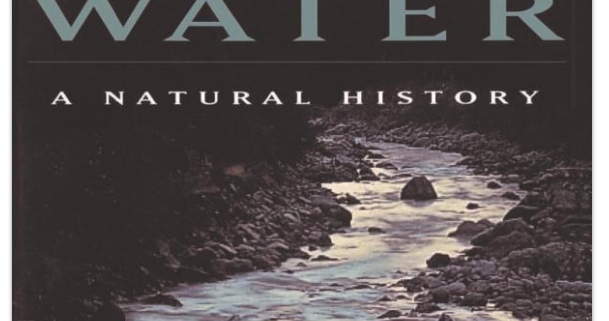Review of Water: A Natural History, by Alice Outwater
Reviewed by FMN Kristina Watts
Water: A Natural History is not just about water. As naturalists, we understand that everything is connected. I teach my students that streams are like the veins and arteries of the Earth, transporting nutrients and wastes; and we all know that water is necessary for life. I picked this book up thinking it would focus on hydrology, chemistry, and provide some details on the water cycle that would be fun to share. But instead, it was deeper than that: it’s the story of relationship, of activities and consequence.
Using aquatic resources as common thread that ties it all together, Alice Outwater takes the reader on a journey through time, showing us how humans have impacted the region that is now the United States since before European discovery of the continent. Starting with the beavers and eventually wrapping her narrative around buffalo, prairie dogs, mollusks, and alligators, she emphasizes how plentiful the animals were that lived on this land throughout pre-colonized history and how their behaviors shaped the ecosystems around them. We talk a lot about keystone species and their role in food webs, but this book highlights the direct connection between animals and the shapes of streams and rivers, ground water recharge, and water quality. Then she describes how human activity has reduced the populations of animals (and plants), and the resulting effects. She takes us through the human side of each story too, explaining for example the demand for fur in Europe during the 1600s, farmers’ naïve understanding of soil structure in the grasslands, and the U.S. government’s endeavors to engineer rivers for transportation and electric power needs.
All of the changes she describes through water’s “natural history” paint a picture of loss – loss of diversity and ecosystem health. She ends with a chapter on wastewater treatment (her specialty, as an environmental engineer by profession) and hope inspired by relatively recent environmental laws (Clean Water Act, Clean Air Act, etc.). She indicates that balance can be restored, if only we allow nature to take its course, well, more naturally. This book was published in 1996; my only complaint about it is that it is “old” – almost as much time has again passed as since the 1970s statutes and when the book was written. I’d love to see an update.
At 224 pages, this book is a pretty fast, colorful read and provides long-term, holistic perspective as well as interesting stories to enhance any discussions you may have involving water resources and our impact on them.
Water: A Natural History, by Alice Outwater, Basic Books, Reprint edition (1997), 224 pages.


